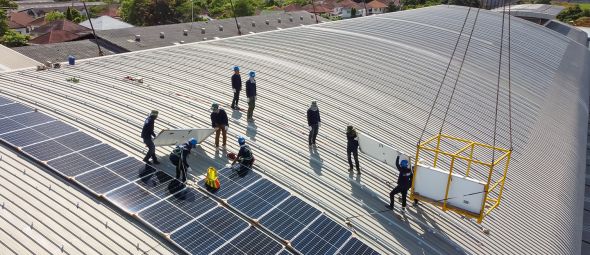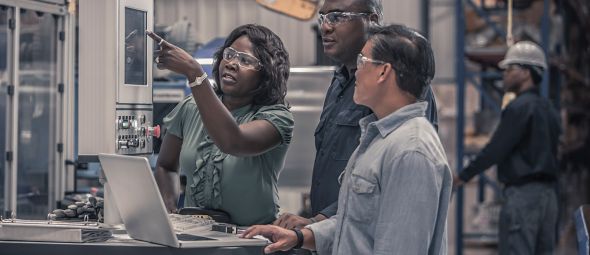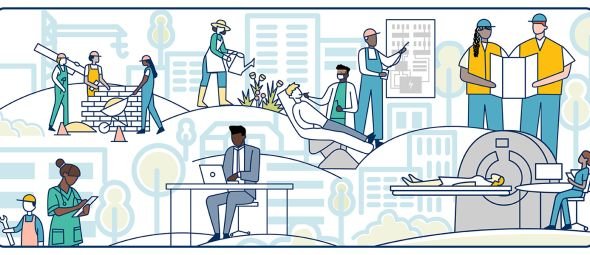Overview
People’s access to opportunity and advancement in the labor market is shaped by macroeconomic forces, technological change, policy choices, and labor market dynamics. Over the past 40 years, these influences have culminated in greater income inequality and less upward economic mobility for US workers. They have also contributed to a growing share of low-wage jobs in the US labor market. WorkRise generates evidence on and elevates our understanding of how macroeconomic, technological change, policy, and labor market dynamics influence economic security and mobility.
Working Knowledge

Economic context
May 03, 2023
Research Summary
Tighter Labor Markets Boost Occupational Mobility for Workers in Low-Quality Jobs
A recent Cleveland Fed study finds that tighter labor markets facilitate job upgrading, boosting upward mobility and access to good jobs for workers in low-quality occupations.

Economic context
May 17, 2023
Research Summary
Amid a Collapsing Labor Market, Pandemic Policy Response Reduced Poverty and Inequality
Research indicates that the robust economic policy response to the COVID-19 pandemic and historically fast employment recovery resulted in reduced poverty and inequality even amid unprecedented pandemic-induced labor market dislocations, according to a recent working paper from the Bureau of Labor Statistics.

Economic context
April 14, 2023
Research Summary
Green Energy Jobs Are Growing and Could Unlock Opportunity for Workers
Green jobs in wind and solar energy are more common than ever before, bringing higher wages to workers, especially in parts of the country worst affected by the decline in fossil fuel extraction.

Economic context
November 22, 2022
Article
How Can the Forces of Change Be Harnessed to Create an Inclusive and Equitable Labor Market?
Greater public and private investment in job training, policies to support unionization, and efforts to close digital divides are core strategies for transforming risks from climate change and automation into opportunity, noted experts at the WorkRise October conference.
Research
Economic context
Brief
Last updated on January 14, 2025
Workforce Strategies for New Industrial Policies: Governors’ Emerging Solutions
The report summarizes findings from interviews with 16 governors’ workforce development policy advisers in states that vary in terms of their political leadership, geographies, and populations.
Grantee Research

Economic context
Last updated on July 09, 2024
Expanding Worker Opportunities Through Evidence: WorkRise Impact Report 2023
By bridging knowledge gaps and forging multi-stakeholder partnerships among employers, worker advocates, policymakers, and practitioners, WorkRise is meaningfully improving economic mobility for lower-wage workers. Our 2023 Impact Report shares more about how we lead with rigorous yet actionable research and get it into the hands of the change makers best positioned to act on it.
Last updated on July 09, 2024
Economic context
Report
Last updated on May 14, 2024
Aligning Workforce and Economic Development to Benefit Workers
In this report, WorkRise examines what we know about the impacts of the workforce development and economic development fields and their implications for equitable economic outcomes for low-wage workers, especially Black individuals and other people of color who have faced systematic challenges in economic mobility.
WorkRise Research
Economic context
Report
November 20, 2023
Quantifying the Costs of Rising Unemployment
Rising unemployment brings significant costs to workers, their families, social outcomes, and the economy at-large. The contemporary tight labor market provides a good opportunity for researchers to better understand the benefits of low unemployment and thus the risks of high unemployment.
WorkRise Research

Economic context
Infographic
September 12, 2023
Leveraging Federal Funds to Create Quality Jobs
Do you want better jobs for your community? Through new federal dollars, state and local policymakers have a once-in-a-generation chance to build a new and thriving workforce.
WorkRise Research